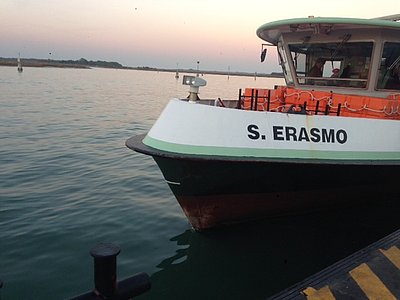Welcome at the Interface Culture program website.
Acting as creative artists and researchers, students learn how to advance the state of the art of current interface technologies and applications. Through interdisciplinary research and team work, they also develop new aspects of interface design including its cultural and social applications. The themes elaborated under the Master's programme in relation to interactive technologies include Interactive Environments, Interactive Art, Ubiquitous Computing, game design, VR and MR environments, Sound Art, Media Art, Web-Art, Software Art, HCI research and interaction design.

The Interface Culture program at the Linz University of Arts Department of Media was founded in 2004 by Christa Sommerer and Laurent Mignonneau. The program teaches students of human-machine interaction to develop innovative interfaces that harness new interface technologies at the confluence of art, research, application and design, and to investigate the cultural and social possibilities of implementing them.
The term "interface" is omnipresent nowadays. Basically, it describes an intersection or linkage between different computer systems that makes use of hardware components and software programs to enable the exchange and transmission of digital information via communications protocols.
However, an interface also describes the hook-up between human and machine, whereby the human qua user undertakes interaction as a means of operating and influencing the software and hardware components of a digital system. An interface thus enables human beings to communicate with digital technologies as well as to generate, receive and exchange data. Examples of interfaces in very widespread use are the mouse-keyboard interface and graphical user interfaces (i.e. desktop metaphors). In recent years, though, we have witnessed rapid developments in the direction of more intuitive and more seamless interface designs; the fields of research that have emerged include ubiquitous computing, intelligent environments, tangible user interfaces, auditory interfaces, VR-based and MR-based interaction, multi-modal interaction (camera-based interaction, voice-driven interaction, gesture-based interaction), robotic interfaces, natural interfaces and artistic and metaphoric interfaces.
Artists in the field of interactive art have been conducting research on human-machine interaction for a number of years now. By means of artistic, intuitive, conceptual, social and critical forms of interaction design, they have shown how digital processes can become essential elements of the artistic process.
Ars Electronica and in particular the Prix Ars Electronica's Interactive Art category launched in 1991 has had a powerful impact on this dialog and played an active role in promoting ongoing development in this field of research.
The Interface Cultures program is based upon this know-how. It is an artistic-scientific course of study to give budding media artists and media theoreticians solid training in creative and innovative interface design. Artistic design in these areas includes interactive art, netart, software art, robotic art, soundart, noiseart, games & storytelling and mobile art, as well as new hybrid fields like genetic art, bioart, spaceart and nanoart.
It is precisely this combination of technical know-how, interdisciplinary research and a creative artistic-scientific approach to a task that makes it possible to develop new, creative interfaces that engender progressive and innovative artistic-creative applications for media art, media design, media research and communication.
Erasmus Staff Mobilität – CALL 2024/25
Erasmus+ Austauschprogramm für Hochschulangehörige (wissenschaftliches und nicht-wissenschaftliches Personal) der Kunstuniversität Linz
Mitarbeiter*innen der Kunstuniversität Linz haben die Möglichkeit, im Rahmen des Erasmus+ Programms im europäischen Ausland zu unterrichten bzw. sich fortzubilden. Für diesen Zeitraum kann eine Erasmus-Förderung beantragt werden.
Die Mobilität kann in Form einer Dienstreise durchgeführt werden. Die Teilnahme an Konferenzen kann im Erasmus Programm nicht gefördert werden!
Alle Informationen dazu finden Sie hier. Erfahrungsberichte von Kolleg*innen finden Sie hier.
Inklusions-Förderung
Für Angestellte mit Behinderung kann eine Förderung zur Deckung der Echtkosten beantragt werden. Details finden Sie hier. Bei Fragen zu diesem Thema zögern Sie bitte nicht und wenden Sie sich an das International Office.
Allgemeine Voraussetzungen
- Eine mindestens eineinhalb Jahre ununterbrochene Anstellung an der Kunstuniversität Linz oder im Einzelfall, mit besonderer Begründung, nach Genehmigung durch das für Lehre zuständige Mitglied des Rektorats - kürzere Anstellung
- Die Mobilität kann nur mit dem Einhergehen der Genehmigung einer Dienstreise abgehalten werden.
- Eine Mobilität in das Wohnsitzland kann nicht durchgeführt werden.
- Eine Mobilität in das Herkunftsland hat die niedrigste Priorität.
- Mindestens 2 Tage physischer Aufenthalt (ohne Reisezeit) in einem europäischen Programmland für Lehre oder Weiterbildung (Training).
- Mindestens 5 Tage physischer Aufenthalt (ohne Reisezeit) in einem europäischen Partnerland für Weiterbildung (Training).
Aktuelle Staff Training Angebote sind auf diesen Plattformen zu finden:
Staff Trainings imotion org
Staff Trainings dorea org
Wenn Sie Interesse an einer Mobilität haben, wenden Sie sich an das International Office. Die Zuteilung erfolgt nach budgetärer Bedeckbarkeit. Erstbewerber*innen werden bevorzugt.
